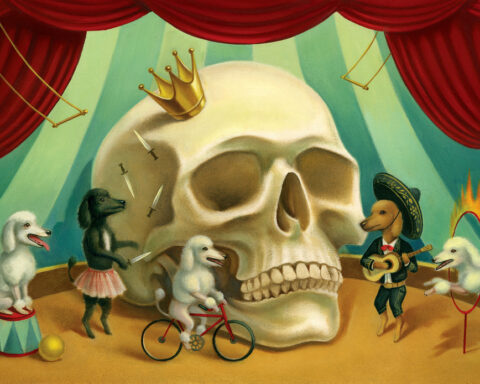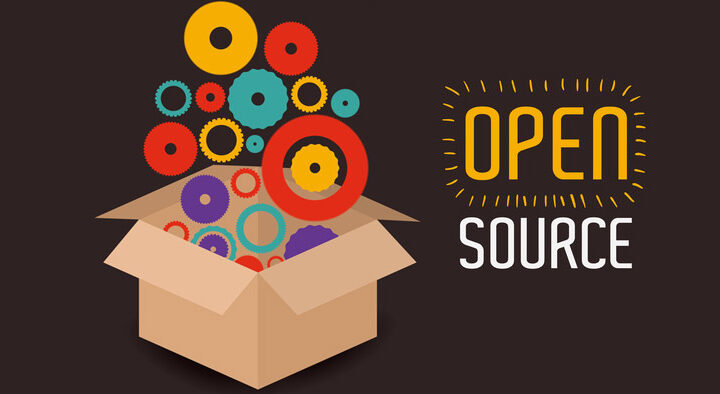The novelist and memoirist talks about growing up poor, her ’70s lesbian feminist collective, and meeting her obligations.
I found Dorothy Allison’s 1992 novel Bastard Out of Carolina in the late, great Harvard Square bookstore Wordsworth’s when I was thirteen. I didn’t have any friends in eighth grade (shocking, I know), so I would spend my free time walking to any bookstore that was closest to me, grabbing as many novels off the shelf as I could hold, and then hiding away in a corner to read them all.
When I picked up Bastard Out of Carolina, I felt a slight thrill at a novel with a dirty word in the title — but precocious teen that I was, I saw that it had a shiny medal reproduced on the cover, so it had to be OK, right? That embossed medallion proved that somebody important thought this book was worthy.
I read it, and the thrill I felt deepened — here was a world so familiar and yet so strange that I couldn’t categorize it. Bastard Out of Carolina is the chronicle of a tight-knit Southern family and the violence that tears them apart and brings them together. It’s also a book about what it means to grow up a girl. I came back to this book again and again, when I was trying to figure out how to write about my own history, my own life, which seemed missing from the wider world unless there as a punch line or a grotesque. Later, Trash, Allison’s book of essays about her early life as a writer, confirmed my drive to try to create, no matter what. She described an existence as an artist that was tough, sometimes confusing, but never depressing, and always with the expectation of pleasure. I spoke with Allison, who is in California now, working on her next novel, about growing up poor, proving the world wrong, and whether or not the desire to create can save you.
Kaitlyn Greenidge: I was reading your essay “Monkeybites,” in Trash, and you were really honest about how a nine-to-five allowed you time to write. Do you have advice for those of us who want to become artists but don’t have the means to live the artist life?
Dorothy Allison: Well, it’s always such an absurd concept, the artist life. Like you were supposed to get an endowment, a grant … You know, if you get a decent day job that’s somewhat clerically related, you get access to a computer, and paper, and a reasonable desk situation. I considered that the biggest grant I could get access to. And it was.
Frankly, if I’d get an idea or something going during the middle of the day, I could steal a little time, write it up, so long as I did my business and kept my job. I have a big concept about meeting your obligations.
KG: Why is that important to you?
DA: Because I was born poor. How many things go back to that? America wasn’t doing us much good when I was a baby. You had to be smarter, faster, and better than anybody else, and you had to follow the rules because they were always out to get you. And that’s a terrible way to grow up, and kind of a terrible self-concept to have, but feeling constantly in danger does lead to a certain amount of pride and stubbornness and Fuck you all, I can do it better than you can. And I will meet my obligations.
Because we were poor, and because we came out of a family that had a certain reputation, we were assumed to be criminal. We were assumed to be thieves and wastrels and unreliable, and my response to that was to be the best little girl in the world. It’s funny how many writers I’ve known who’ve had that, best little boy, best little girl. You have to have an independent sense of honor to deal with the world in that way when you are so constantly denied.
KG: I was talking to a friend about the one silver lining of growing up poor. He said we have been told “No” all our lives, so we are used to it and can survive in this profession that’s built on rejection.
DA: It can lead to a certain arrogance, which I always observed in myself. You meet the children of the rich, especially working in an arts organization in New York, because the children of the rich were always getting the internships. You know about internships, right? So people come in and they’re not being paid, and I’m always like, “How the fuck are you managing?” And they’re like, “Well, my daddy provided me with an apartment, and Mommy gave me a credit card.” And I’m like, “Oh, I get it.” You are a different animal.
But they seemed to me on some level inherently fragile, because the world had never taken them by the throat. If you have that experience, you’re clear about some things. You’re clear about your own endurance, and, to a certain extent, you’re clear about what it is you’ll give and what you won’t give. That’s a tricky thing, though. And you can be ruined.
And it seems to me that coming out of my childhood, I felt that we were inherently bad, and it would be a life struggle not to act out of violence and not to … I mean, you don’t have any idea. Maybe you do! Do you ever go to somebody’s really rich house and look at all the trinkets they have lying around and have an overwhelming desire to steal their earrings? And having to constantly resist that so you don’t become the bad person everybody thinks you are?
The best American literature is working-class literature. The strongest voices are those voices, those people who have come out of the poor and the disadvantaged circumstances to claim their right to tell a story.
KG: Yeah, for sure. When I was in high school, I had a friend, her family was much more wealthy than I was, and I used to go to her house for sleepovers. And they were the type of people who they would buy these really fancy European chocolates, and they wouldn’t eat them all at once, they’d just keep them in their refrigerator, and it was a huge struggle not to wake up in the middle of the night and just gorge on their stupid European chocolates that they just had in there. And that they were all just able to eat a sliver of, ’cause they knew they could just go out and buy more. It was maddening.
DA: And if you do give in to the impulse, you feel like you’re just confirming everything that anyone has ever accused you of. “Ugh, well, you’re inherently a thief, you’re inherently less than.” Now, that’s the same struggle as claiming the right to tell your own stories and to develop your own voice. You’re always one down, and trying not to be their idea of one down.
And then define, what is your own unique story? It’s a struggle for every writer. And to value your story is a struggle for every writer. The problem is, of course, that if you live in a culture that inherently devalues the poor, the working class, the darks, the queer, the other, and you are all those categories, then you are fighting the voice of your culture at the same time that you are fighting all of the other difficulties of developing a voice and telling a story.
It’s a miracle that we ever manage, but my conviction — and I’m old enough to have evidence to support my convictions — is that the best American literature is working-class literature. The strongest voices are those voices, those people who have come out of the poor and the disadvantaged circumstances to claim their right to tell a story. And they tell stories with such passion and brilliance. You don’t have to read far to realize the power of those outlaw voices and how they dominate American literature.
KG: What are some of the limitations to fiction writing?
DA: Well, contrary to popular belief, it can’t save your life. It can’t buy you justice. God knows for a long time I thought it could and worked very hard in that direction. And the other complicated thing is, I do believe that a great novel can change a culture. But at the same time, the culture resists being changed mightily.
It’s like we’re in a river and the water is always moving fast in one direction. And the current that moves through history — for recorded history, as far as I can tell — is in fact a contempt and a debasement for the female. And if you’re in resistance to that, you can lose track of the fact that that current will destroy you, and that it is always working to destroy those of us who are fighting it.
And there’s lots of evil motherfuckers voicing these prejudices, bigotry. But it’s not just the individual evil motherfuckers. It is a wave in society that carries us along, and to fight it we don’t often acknowledge how much struggle it is to fight it. How painful, how costly, and how little progress we make before the river sweeps us over again. I watched the election. Let’s just go there, OK?
KG: OK, yeah.
DA: And everybody’s talking about the reason Donald Trump got elected, the various reasons. And yeah, there has been class contempt that fed into what I think of as a class rebellion that voted for Donald Trump. But I also think that deep in this current has been this women-hatred. And that the verbalization of hatred for Hillary Clinton that I heard was not so much about Hillary. It was a contempt for the female. That does not get much discussion or cache because we’re not in a moment when people are discussing that hatred for women, that contempt for women, that is inherent in the culture. Not just American culture.
KG: It’s so frustrating.
DA: It is, it is. And how in the world can women be so dangerous that there’s so much construction in society built up to keep us from having a voice or access to power? Boy, we could take some backhanded pleasure in the recognition that we are so dangerous. But that’s like talking about class. Meanwhile, you still have to live and try to survive and try to do good work. And protect your family and your people. And then there’s being a lesbian, which is like women-hatred doubled, tripled, and maybe more arduous. And that’s very complicated and has all kinds of wonderful ways it splinters through the culture.
KG: What do you mean by that?
DA: I mean I have a twisted sense of humor. But because we do not engage in the heterosexual exchange that defines so much of society’s rules and privileges and honors, because we’re not invested in that system, we are threatening on such a basic level that you might as well take pleasure in being threatening. At the same time, trying to be aloof but smart about how you move through society with it.
I was in a lesbian feminist collective way long ago, back when they had such things. This was in the early ’70s, living in Tallahassee, Florida. And we were living in a working-class neighborhood, and there was a guy down the road who was always a little drunk. You know, the neighborhood guy who goes out and yells at the moon every once in a while. Maybe they don’t have those in middle-class communities, but every working-class community I’ve ever been has had one. We got one here where I live now, but he’s a tweaker rather than a drunk. But they go out and they yell in the road, and we just try to walk around him and not engage with him.
But one day, he decided that we were what was wrong with his world. And he showed up on our front yard with a shotgun. And I’m like, “Oh, fuck.” And we all ran to the back of the house. I remember climbing into the bathtub and he shot this shotgun right through our front door. But, you know, he just went home and went to sleep, so we never learned what it was we had done that triggered him to shoot our front door.
That people would feel completely justified in assaulting you because of your sexual identity, your gender presence. Wow. Wow. Just to even understand it — because that’s what I was always trying to do — it was hard for me to accept that it wasn’t a rational system. That so much of culture is irrational. I’m just trying to take pleasure in being the disruptor in American culture. It’s a constant struggle.
This interview has been condensed and edited.
Kaitlyn Greenidge is a contributing writer for Lenny Letter and the author of the novel We Love You, Charlie Freeman.

















